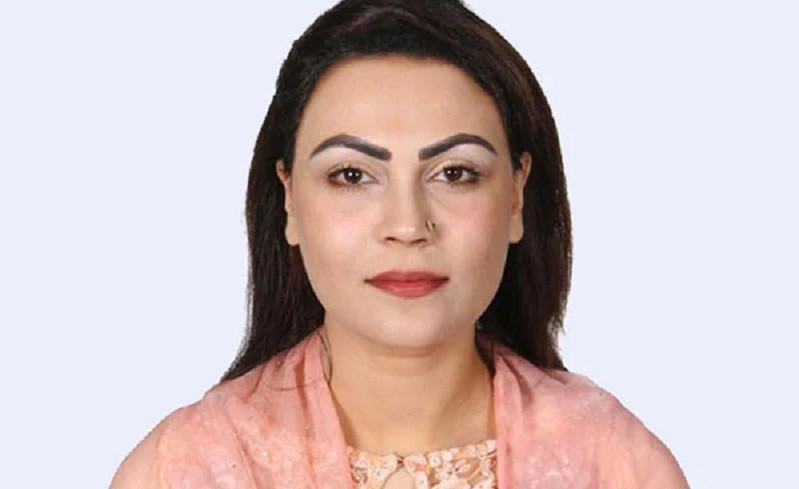Print: 28 Oct 2025
A Bangladeshi housewife, through years of diligent saving and entrepreneurial effort, amassed modest savings aimed at securing her daughter's future. However, her financial prudence was met with unwarranted suspicion when the Bangladesh Financial Intelligence Unit (BFIU) froze her bank accounts, questioning how a housewife could accumulate such funds. Despite court orders deeming the freeze unlawful, the BFIU's noncompliance left her in financial limbo, unable to access her savings or service loans, illustrating a troubling instance of bureaucratic overreach.
This incident is not isolated. Recent actions by the BFIU have seen the freezing of accounts belonging to various individuals, including business leaders and former officials, often without transparent justification. Such measures, while aimed at curbing financial misconduct, risk undermining public trust when applied indiscriminately, especially against individuals without substantial evidence of wrongdoing.
The housewife's predicament starkly contrasts with Bangladesh's strides in women's empowerment, notably championed by Nobel Laureate Dr. Muhammad Yunus. His initiatives have fostered financial independence among women through microfinance and entrepreneurship. However, actions like those of the BFIU threaten to erode these gains, potentially deterring women from pursuing economic self-sufficiency due to fear of unwarranted scrutiny.
The current scenario echoes past instances where overenthusiastic officials, perhaps aiming to display loyalty or initiative, have overstepped, causing public distress and tarnishing governmental credibility. Such behavior not only disrupts individual lives but also fosters a climate of fear and uncertainty, counterproductive to national progress and unity.
The interim government, established with the promise of fairness and reform, must address these concerns promptly. Ensuring that agencies like the BFIU operate with transparency and accountability is crucial. Protecting citizens from undue harassment while maintaining vigilance against genuine financial malfeasance requires a balanced approach, reinforcing the rule of law and public confidence.
The housewife's experience serves as a poignant reminder of the delicate balance between vigilance and overreach. As Bangladesh continues its journey towards equitable governance, it is imperative to curb bureaucratic excesses that jeopardize individual rights and societal trust. Empowering citizens, especially women, should remain a cornerstone of national policy, unmarred by the shadows of administrative overzealousness.
Author: Playwright and columnist
Email: [email protected]
How Bureaucratic Inefficiency Endangers Public Freedom

A Bangladeshi housewife, through years of diligent saving and entrepreneurial effort, amassed modest savings aimed at securing her daughter's future. However, her financial prudence was met with unwarranted suspicion when the Bangladesh Financial Intelligence Unit (BFIU) froze her bank accounts, questioning how a housewife could accumulate such funds. Despite court orders deeming the freeze unlawful, the BFIU's noncompliance left her in financial limbo, unable to access her savings or service loans, illustrating a troubling instance of bureaucratic overreach.
This incident is not isolated. Recent actions by the BFIU have seen the freezing of accounts belonging to various individuals, including business leaders and former officials, often without transparent justification. Such measures, while aimed at curbing financial misconduct, risk undermining public trust when applied indiscriminately, especially against individuals without substantial evidence of wrongdoing.
The housewife's predicament starkly contrasts with Bangladesh's strides in women's empowerment, notably championed by Nobel Laureate Dr. Muhammad Yunus. His initiatives have fostered financial independence among women through microfinance and entrepreneurship. However, actions like those of the BFIU threaten to erode these gains, potentially deterring women from pursuing economic self-sufficiency due to fear of unwarranted scrutiny.
The current scenario echoes past instances where overenthusiastic officials, perhaps aiming to display loyalty or initiative, have overstepped, causing public distress and tarnishing governmental credibility. Such behavior not only disrupts individual lives but also fosters a climate of fear and uncertainty, counterproductive to national progress and unity.
The interim government, established with the promise of fairness and reform, must address these concerns promptly. Ensuring that agencies like the BFIU operate with transparency and accountability is crucial. Protecting citizens from undue harassment while maintaining vigilance against genuine financial malfeasance requires a balanced approach, reinforcing the rule of law and public confidence.
The housewife's experience serves as a poignant reminder of the delicate balance between vigilance and overreach. As Bangladesh continues its journey towards equitable governance, it is imperative to curb bureaucratic excesses that jeopardize individual rights and societal trust. Empowering citizens, especially women, should remain a cornerstone of national policy, unmarred by the shadows of administrative overzealousness.
Author: Playwright and columnist
Email: [email protected]





